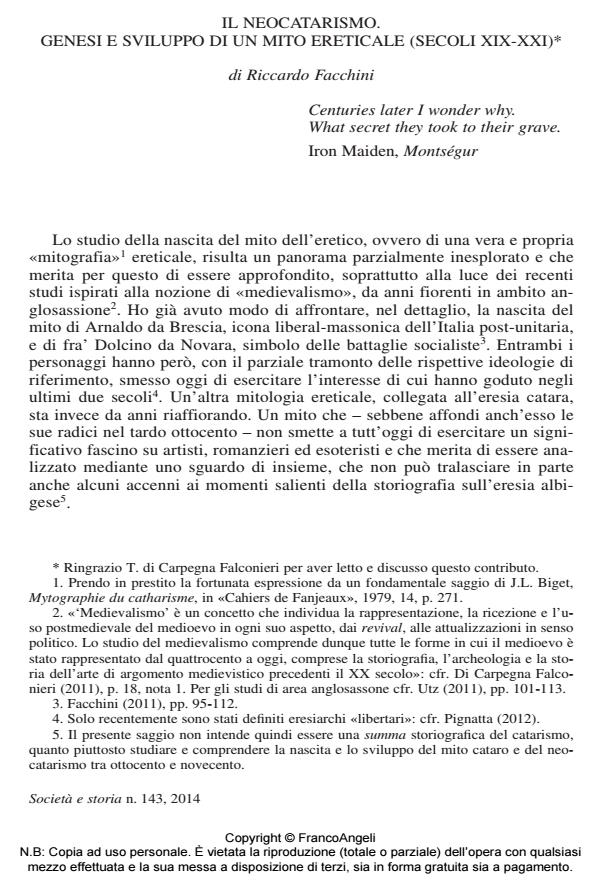Neocatharism. Origins and development of an heretical myth (XIXXX-centuries).
Journal title SOCIETÀ E STORIA
Author/s Riccardo Facchini
Publishing Year 2014 Issue 2014/143
Language Italian Pages 35 P. 33-67 File size 615 KB
DOI 10.3280/SS2014-143002
DOI is like a bar code for intellectual property: to have more infomation
click here
Below, you can see the article first page
If you want to buy this article in PDF format, you can do it, following the instructions to buy download credits

FrancoAngeli is member of Publishers International Linking Association, Inc (PILA), a not-for-profit association which run the CrossRef service enabling links to and from online scholarly content.
This paper proposes to illustrate the post-medieval reception of the Cathar heresy-and the development of a "neo-Cathar mythology" from the end of the nineteenth-century to the present day. After a brief historiographical introduction, it discusses-the contemporary neo-Cathar revival and divides it into two phases. During the first-phase (end of the nineteenth century - early twentieth) the Albigensian heresy was-mostly regarded as an esoteric and syncretic belief or as a founding myth of the Occitanian-identity; in the second phase it was held to be a sort of ancient and authentic-gnostic-Christian message in opposition to Roman catholicism. In the second half-of the twentieth century these two approaches merged in the commercial exploitation-of the myth through the production of novels, movies and songs related to the Cathar-epic.-
Keywords: Albigensians, Catharism, Heresy, Medievalism, Neocatharism, Historiography.-
Riccardo Facchini, Il neocatarismo. Genesi e sviluppo di un mito ereticale (secoli XIX-XXI ) in "SOCIETÀ E STORIA " 143/2014, pp 33-67, DOI: 10.3280/SS2014-143002